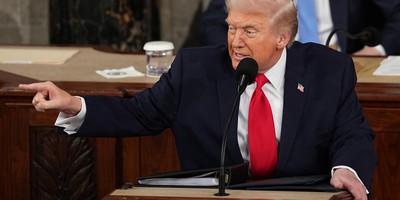The Washington Post’s David Fahrenthold counts six budget “showdowns” in Washington over the past two and half year. The looming battle this fall over funding the government and raising the debt ceiling will be number seven. That led Fahrenthold to examine what the six showdowns have accomplished with regard to the size of government.
In sum: we had big government two and half years ago and today we have…big government.
Some left-leaning pundits are in a tizzy that the Washington Post would dare run an article that doesn’t speak of “draconian” spending cuts to “popular programs.” Instead, Fahrenthold looked at four measures and concluded that little has changed: federal spending is slightly down, the number of federal employees is slightly down, the number of regulations is up, and the federal government still has a lot of real estate.
Fahrenthold’s sin (one of them) is that in pointing out that spending has gone flat after the bipartisan spending explosion of the 2000s he didn’t recognize the alleged virtues of increasing government spending to “stimulate” the economy. I’m guessing Fahrenthold didn’t get the memo that a journalist writing for a mainstream news outlet is supposed to supply a quote from some macroeconomic forecasting Nostradamus like Mark Zandi.
I do wish, however, that Fahrenthold would have explicitly differentiated between the size and scope of government. When it comes to the scope of government activity—basically, what all Uncle Sam does—I don’t know how anyone could argue that it has receded in the past two and a half years. Or the past ten years. Or, well, you get the point.
Does Obamacare represent a reduction the federal government’s scope? How about the NSA’s eavesdropping? Continued subsidies for flights to dinky airports? Here’s Fahrenthold on that one:
This Congress has also indulged in the habit of letting “temporary” giveaways become effectively permanent. A prime example is the Essential Air Service, a $240 million program that subsidizes flights to 161 small airports.
It was supposed to die in 1988. It didn’t.
Congress has renewed the program, again and again. Now it subsidizes flights to places such as tiny Glendive, Mont., where the government pays for a 19-seat aircraft to visit twice a day.
On average, two people get on each day. The subsidy works out to $836 for each of their tickets.
“If we can’t cut this, we can’t cut anything,” said Rep. Tom McClintock (R-Calif.), who sponsored an attempt to kill the program last summer.
They can’t cut this.
McClintock’s amendment lost by 74 votes. Then he tried again this summer. And lost. Many members explained their “no” votes by saying they were unwilling to sacrifice the subsidies to airports in their districts. “It’s that old problem of concentrated benefits with diffuse costs. The benefits are lavished on a few select communities, and the costs are diffused across the entire tax base,” McClintock said afterward. The beneficiaries, he said, are the only ones who care enough to fight.
Still, McClintock says he’s holding out hope. After all, the first time he got 164 votes in favor of this cut.
This year: 166.
“We picked up two votes,” he said. “I suppose that’s progress.” He needs 218 to win.
Indeed, over the past couple of years I have noted several occasions where Republicans—including so-called “tea partiers”—voted to spare federal programs from termination. (See here, here, here, here, here, and here.)
Although I’m not a macroeconomic forecaster and thus cannot see the future, I’m going to go out on a limb and predict that after budget showdown #7 in the fall we will still have big government. And, unfortunately, the situation isn’t going change after we go through additional budget showdowns in 2014.
It’s going to be Groundhog Day for a while.























Join the conversation as a VIP Member